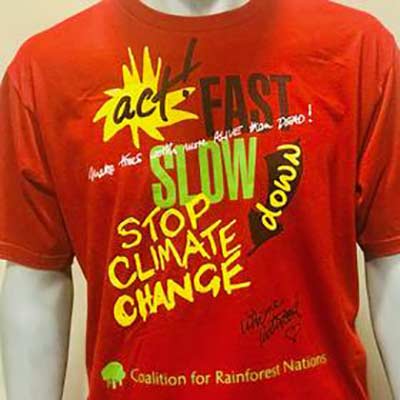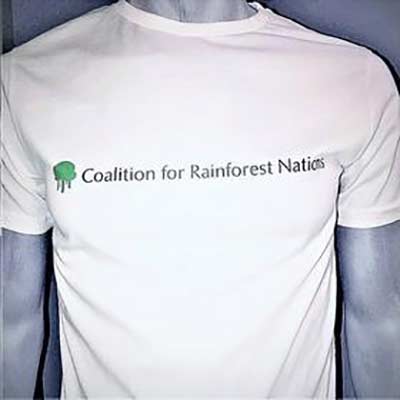Help Save Rainforests & Endangered Species
Technical Training & Capacity-Building
Data Collection & Capacity Building
We provide essential training and capacity building to help governments measure, report, and verify their rainforest cover and emission reductions
We provide essential training and capacity building to help governments measure, report, and verify their rainforest cover and emission reductions
What Rainforest Countries Need
While CfRN was successful in negotiating the UNFCCC REDD+ framework into the Paris Agreement, there is still a massive amount of work to do to support developing countries. A challenge for many governments is how to show the international community that they are slowing deforestation and reducing emissions. Access to reliable data is very scarce in many developing countries, and access to high-resolution images is very costly. Rainforest nations need to accumulate measurement data on land and forest management and create data systems. Many countries have gaps in accurate reporting on emissions from forests and other land use. These gaps must be resolved before they can report their results to the United Nations.
CfRN supporting Suriname’s first ITMO issuance under the Paris Agreement
Our dedicated technical team at CfRN collaborating closely with Senegal. Our combined efforts hone in on enhancing land use monitoring, and ensuring precise reporting to the UNFCCC.
What We Offer
CfRN’s training and technical support spans the globe. For over a decade, we’ve supported nations in Africa, the Caribbean, Central & South America, and the Asia-Pacific region. We provide essential training and capacity building to help governments develop their knowledge and skills to measure, report, and verify their rainforest cover and emission reductions. We train in how to use the latest technology and practices, and offer this service to all interested countries, free of charge.
What sets CfRN apart is our ability to collaboratively empower country teams, enabling them to confidently submit their results to the United Nations and to no longer need consultants to support them. CfRN delivers country-centered training, providing precisely what they need. No country is too small to matter, every country counts.
Learn how CfRN provides essential training to countries on measuring and reporting their efforts to slow deforestation
Our Training Program
Rainforest countries must regularly collect data on land-use change to update their national greenhouse gas inventories as part of their commitment to the Paris Agreement. We support countries through our Reporting for Results-based REDD+ (RRR+) program which helps national teams create greenhouse gas inventories, build skills to measure and report on forest- and land-based emissions, and sets them up to report their results to the UN. All country data submissions are governed by guidelines defined by the international body on climate science, called the Intergovernmental Panel on Climate Change (IPCC). We offer countries both light touch and full support in training government agency and forestry commission staff.
Milena Nino, CfRN GHG expert providing a REDD+ technical training session in Dominica
Countries require various levels of support in measuring and reporting their rainforest cover and emission reductions to UNFCCC:
Full Support
- Belize
- Benin
- Bhutan
- Bolivia
- Cameroon
- Congo
- Dominica
- Dominican Republic
- DRC
- Fiji
- Gabon
- Ghana
- Liberia
- Mozambique
- Papua New Guinea
- Saint Lucia
- Suriname
- Uganda
Light Touch
- Argentina
- Burundi
- Chad
- Equatorial Guinea
- Honduras
- Indonesia
- Jamaica
- Kenya
- Madagascar
- Malaysia
- Malawi
- Nigeria
- Paraguay
- Rwanda
- Solomon Islands
- St. Vincent & the Grenadines
- Thailand
Countries that have expressed demand for support, and which may in the future transition to full country support
In 2022, Google Earth Engine and Planet NICFI made images freely available. The CfRN Land Use Assessment App directly links to these image sources.
In-Person and Online Courses
During the program, a country’s climate and forestry specialists participate in customized online and in-person training sessions from our highly qualified, international technical team. CfRN uses the latest technology and practices that allow countries to collect data on land use and land use change over time, making reporting to the UNFCCC on deforestation data or carbon stocks accurate.
In 2022, Google Earth Engine and Planet NICFI made satellite images freely available. CfRN’s Land Use Assessment App directly links to these image sources. This allows countries to track land use and land-use change through time with spatially explicit information, including natural and human disturbances such as fires, logging, hurricanes, pests, and other causes.
For a full review of all CfRN’s capacity-building and technical training, please check out our Annual Reports
Rainforest nations are slowing deforestation based on goodwill and with little financial support. Join our movement.
“Our goal is that the countries we support produce reports, design strategies, and implement monitoring systems that represent their circumstances.”
Milena Nino, CfRN GHG expert.
“Even after accounting for ongoing reforestation efforts, deforestation today claims an area close to the size of Greece every year. Achieving a 1.5-degree pathway would mean dramatically slowing this.”
McKinsey, 2020
Training the Next Generation of African Women in Climate Action.
Women disproportionally bear the brunt of climate change. The Women’s Initiative for Climate Action program (WICA) is a popular and proactive way to empower women to fight back. In addition to our RRR+ project, CfRN supports the WICA program, a collaboration with the US Forest Service.
In 2021-2022, CfRN’s team trained a total of 78 women on greenhouse gas inventory training, and 60 women for climate negotiations. The trainees hailed from Congo, the Democratic Republic of Congo, Cameroon, and Gabon.
A total number of 184 young women in the Central African Republic, Cameroon, Gabon, the Republic of Congo, and the Democratic Republic of the Congo were successfully trained in UNFCCC and Paris Agreement reporting requirements for Article 6 and REDD+.


Hilary Ngouabo Dassi from Cameroon shares her experience on WICA Training.
“In Cameroon, I am recognized as one of the few young people with experience in UNFCCC climate change negotiations. I participated in WICA courses, “Paris Agreement and Rulebook Implementation” and “National GHG Inventory, Emission and Absorption Estimates in the AFOLU sector.” Taught by Leonardo Massai and Eloïse Guidi respectively, the coursework broadened my political and technical perspective on the subject. Especially relevant are the impacts on the Congo Basin, where Cameroon lies. I intend to put this expertise at the disposal of my government, the private sector, and municipalities.”


